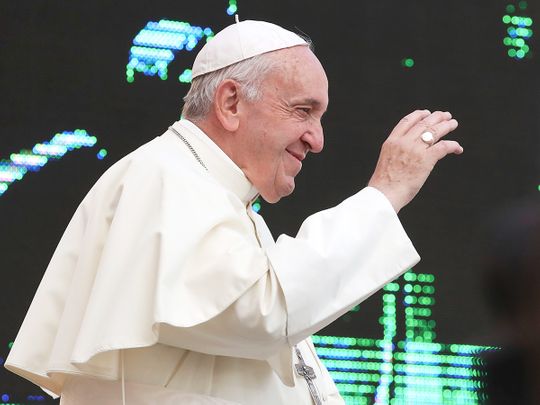
Vatican City: Pope Francis will voice his opposition to nuclear weapons and honor victims of Japan's 2011 nuclear disaster during a visit to the country that is expected to be a highlight of his upcoming trip to Asia.
The Vatican on Wednesday released the details of Francis' Nov. 19-26 visit to Thailand and Japan, which includes stops in Nagasaki and Hiroshima, which were destroyed by U.S. atomic bombs at the end of World War II.
In Thailand, Francis will meet with the supreme Buddhist leader and hold a meeting with other faith leaders, focusing on interfaith dialogue on the first leg of his trip. In Bangkok, he is likely to speak out about poverty and human trafficking, both problems in Thailand and issues of concern for the pope.
In Japan, Francis will travel to Nagasaki where he will issue a message about atomic weapons, the Vatican said. There he will also honor 26 martyrs killed in 1597.
Nagasaki, in southwestern Japan, is rich in the legacy of Christian missionaries dating back to the samurai era, and the visit there is likely to be particularly poignant for Francis: He longed to be a missionary in Japan but was prevented from going because of poor health when he was a young priest in Argentina.
Francis will also visit Hiroshima and preside over a peace meeting at the city's peace memorial.
Back in Tokyo, Francis will meet with victims of Japan's more recent "triple disaster," the 2011 earthquake, tsunami and nuclear meltdown in Fukushima, northern Japan.
Three of the plant's reactors had meltdowns after the magnitude 9.0-earthquake and tsunami, spreading radiation into surrounding communities and into the sea. The fallout from the disaster has prevented thousands of residents from returning home.
Francis has gone beyond his predecessors in demanding a world without nuclear weapons, saying the Cold War-era policy of nuclear deterrence had provided a false sense of security.












